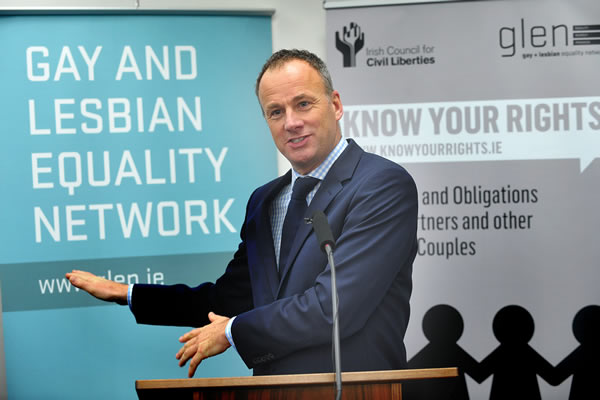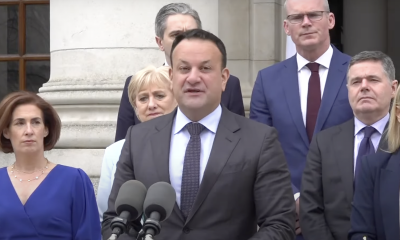World
Irish constitutional commission backs same-sex marriage
79 percent of 100 members supported recommendation, 2014 referendum possible
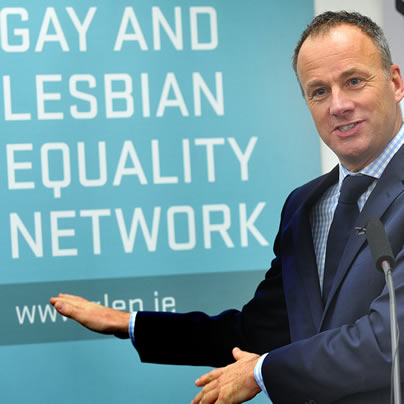
Seventy-nine percent of the Constitutional Convention’s 100 members supported the recommendation to amend the country’s constitution on which they voted at the end of a two day meeting at a Dublin hotel. Eighty-one percent of them also recommended the government expand adoption and other rights to gay and lesbian couples and protections to their children that are not included under the country’s civil partnership law that took effect in 2011.
“We are delighted with today’s result at the Constitutional Convention on the issue of same-sex marriage,” Marriage Equality Director Moninne Griffith said in a statement. Her group worked with the Gay and Lesbian Equality Network and the Irish Council for Civil Liberties to urge commission members to support the issue. “This proves that Ireland is ready for equality for same-sex couples and wants equal access to civil marriage for loving committed lesbian and gay couples.”
The Irish Catholic Bishops Conference, which argued against same-sex marriage alongside the Evangelical Alliance of Ireland and the Order of the Knights of Columbanus, criticized the vote.
“While the result of the Constitutional Convention is disappointing, only the people of Ireland can amend the constitution,” a spokesperson told the Irish Times. “The Catholic Church will continue to promote and seek protection for the uniqueness of marriage between a woman and a man, the nature of which best serves children and our society.”
The convention’s recommendation comes 20 years after the Irish government decriminalized homosexuality.
Ireland in 1996 began to grant asylum to refugees on grounds they suffered anti-gay persecution in their countries of origin. Laws that banned discrimination based on sexual orientation in employment and public accommodation took effect in 1998 and 2000 respectively.
Ireland’s High Court in 2006 declined to hear the case of a lesbian couple who wanted the government to recognize their Canadian marriage. They subsequently appealed the ruling to the country’s Supreme Court.
Irish overwhelmingly back same-sex marriage
Recent polls show roughly 75 percent of the Irish people now support the extension of marriage rights to gays and lesbians.
GLEN Director Brian Sheehan noted to the Washington Blade during an interview from Dublin on Sunday a number of factors have contributed to this increased support. These include the decriminalization of homosexuality in the country, the Catholic Church’s diminished influence in Ireland over the last two decades, and former Irish President Mary McAleese and President Obama’s public support of same-sex marriage.
Sheehan also pointed out more than 1,000 couples have thus far taken advantage of Ireland’s civil partnership law. He noted newspapers across the country have featured what he described as “really positive stories” about these celebrations.
“The vision of lesbian and gay people has radically altered,” Sheehan told the Blade. “I’m not by any means trying to say that [the movement for LGBT rights is] over, but we have come a long way in a very, very short period of time.”
The convention approved the recommendation to extend marriage rights to same-sex couples in the Irish constitution two days after the French Senate approved a bill that would allow gay and lesbian couples to tie the knot and adopt children.
Iceland, Norway, Sweden, Denmark, the Netherlands, Belgium, Spain and Portugal are among the countries in which same-sex couples can legally marry. The British House of Commons in February approved a bill that would allow nuptials for gays and lesbians in England and Wales.
The Scottish Parliament is expected to consider a similar measure later this year.
The Irish government will announce within the next four months whether a same-sex marriage referendum will take place.
Sheehan said he expects it would occur next year.
“It is seen as the next step in a remarkable journey,” he said in response to the Blade’s question about how the Irish people feel about the potential same-sex marriage referendum. “Referendums in Ireland are complex for very many reasons and we may be in the position of having a referendum. But rather than a referendum to remove something, this is a referendum to enable something.”
Canada
Prominent Ugandan activist asks for asylum in Canada
Steven Kabuye stabbed outside his home on Jan. 3
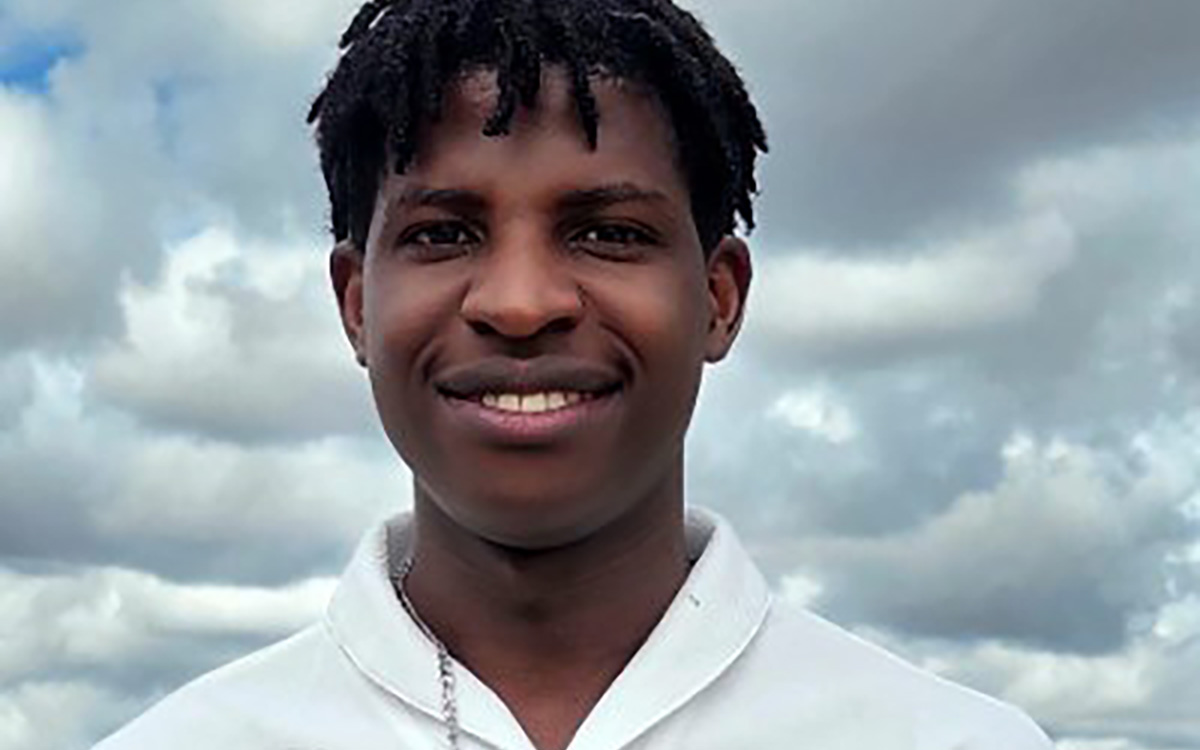
A prominent Ugandan activist who was stabbed outside his home earlier this year has asked for asylum in Canada.
Two men on motorcycles attacked Steven Kabuye, co-executive director of Coloured Voice Truth to LGBTQ Uganda, on Jan. 3 while he was going to work.
Kabuye posted a video to his X account that showed him on the ground writhing in pain with a deep laceration on his right forearm and a knife embedded in his stomach.
He spoke with the Washington Blade from Kenya on Jan. 8 while he was receiving treatment. Kabuye arrived in Canada on March 6.
Kabuye during an April 27 telephone interview with the Blade from Canada said Rainbow Railroad, a group that works with LGBTQ and intersex refugees, helped him “get away from the dangers that were awaiting me in Kenya and Uganda.” Kabuye said he asked for asylum in Canada because he “cannot return to either Uganda or Kenya.”
“The Ugandan government fails to get the culprits who wanted to end my life,” he said.
Kabuye told the Blade that Ugandan police officials threaten his colleagues when he publicly speaks about his case.
“Every time I come up and demand for the police to act out, they end up calling the colleagues of mine that remain in Uganda and intimidate them so they can scare me off, so they can make me pack up and keep quiet,” he said.
Ugandan President Yoweri Museveni last May signed his country’s Anti-Homosexuality Act that, among other things, contains a death penalty provision for “aggravated homosexuality.”
Canadian Foreign Minister Mélanie Joly described the law as a “blatant violation of human rights and fundamental freedoms of LGBTQ+ Ugandans.”
The U.S. has sanctioned Ugandan officials and removed the country from a duty-free trade program. The World Bank Group also suspended new loans to Uganda in response to the Anti-Homosexuality Act.
The Ugandan Constitutional Court last month refused to “nullify the Anti-Homosexuality Act in its totality.” A group of Ugandan LGBTQ activists have appealed the ruling.
“The previously concluded ruling did not make a difference,” said Kabuye.
Kabuye told the Blade he has an interview with Canadian immigration officials on Friday. He said he will continue to advocate on LGBTQ Ugandans from Canada.
“I’m very grateful to Rainbow Railroad,” said Kabuye. “They’ve still given me a chance to continue my advocacy.”
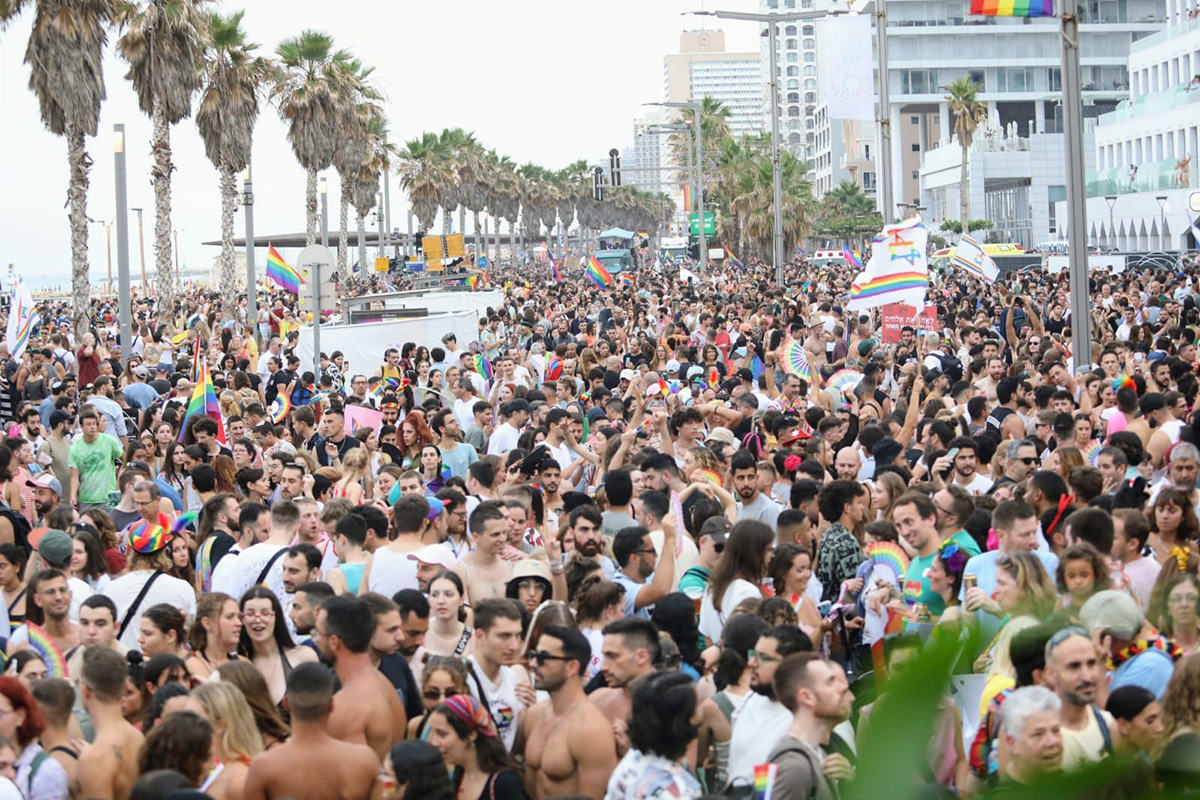
Tel Aviv-Yafo authorities on Wednesday announced the cancellation of Tel Aviv’s annual Pride parade.
The municipality said it will instead hold a rally as a sign of pride, hope, and freedom.
The decision was made after municipality representatives consulted with LGBTQ community organizations, LGBTQ party promoters and venue owners in the city. Possible alternatives to the Pride parade were discussed.
Mayor Ron Huldai in a post he published expressed the self-evident reasons for making the change.
“This is not the time for celebrations,” Huldai wrote. “In coordination with the organizations of the LGBTQ community, we decided that this year, instead of the Pride parade, we will hold a rally in Tel Aviv-Yafo as a sign of pride, hope, and freedom. 132 of our sons and daughters are still kidnapped in Gaza, the circle of bereavement is expanding every day, and we are in one of the most difficult periods of the State of Israel.”
“Tel Aviv-Yafo is the home of the LGBTQ community, it was and always will be,” he added. “Out of our great commitment to the community, this year we decided to divert part of the budget intended for the production of the Pride parade in favor of the activities of the ‘LGBTQ Center’ in Tel Aviv-Yafo. We feel the pain of the entire country, and at the same time we do not stop for a moment the fight for equality and freedom — for everyone and everything. See you at the Pride parade in June 2025.”
The coalition of LGBTQ community organizations welcomed the decision.
“We welcome the decision of the Tel Aviv Municipality not to hold the Pride parade as usual this year,” they said. “In these difficult days, when we are all in pain and grieving and when many of our brothers and sisters are not at home, either as evacuees from their homes or kidnapped in Gaza, and our hearts are not whole until they return. It is true that the Pride events will undergo adjustments to the times.”
“Since time immemorial, the Pride parade in Tel Aviv, in contrast to the other parades and events throughout the country, has been a celebration of freedom, love, and equal rights and now, in these difficult days, it is important to continue to fight for a free and tolerant future even if we avoid the celebration,” they added. “Participation in the various Pride events around the country is more important than ever and we call on all members and members of the gay community and everyone who believes in a liberal, freer, and more just society to get out of the house and take part both in the rally in Tel Aviv and in the various events for the fight for equality and tolerance across the country.”
Russia
Vladimir Putin takes office for fifth term as Russia’s president
Kremlin’s crackdown on LGBTQ people expected to continue
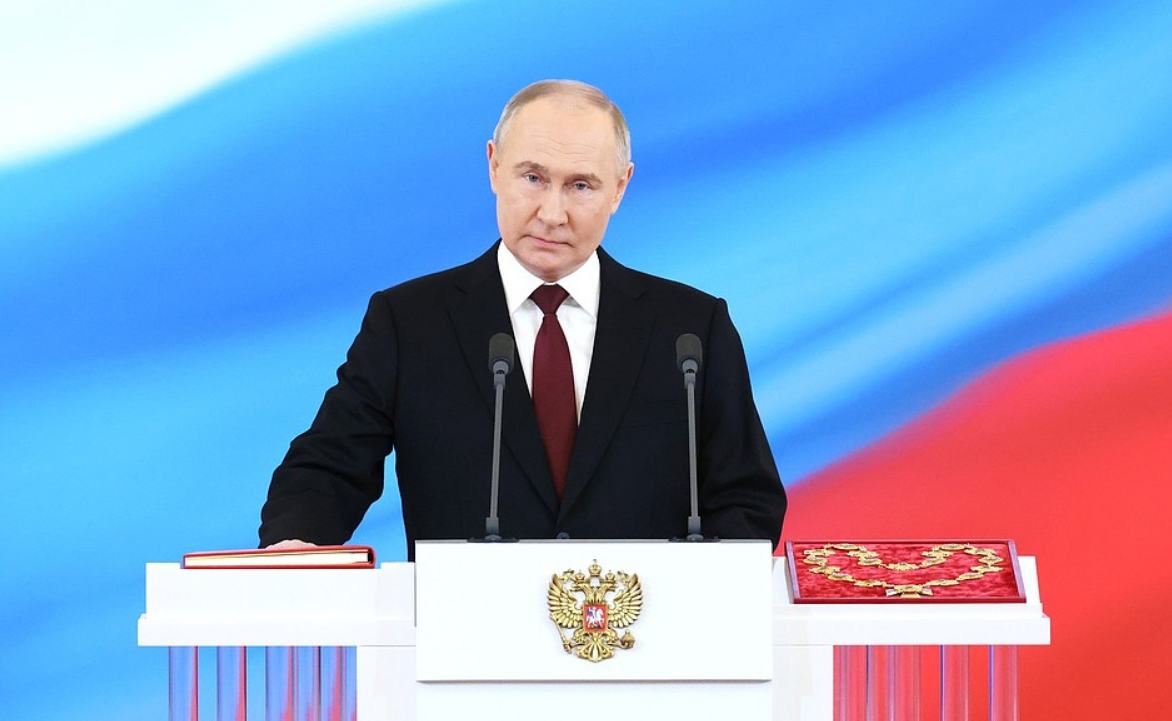
On Tuesday, Vladimir Putin took his oath of office becoming the second ever longest serving leader of the modern Russian state since Soviet dictator Joseph Stalin, who held power from 1922 until his death in 1953.
Putin’s tenure in office has been marked by his acquisition of concentrated political power in part due to his eradication and imprisonment or the deaths of his political opponents, such as his rumored unproven involvement in the assassination of fierce Putin critic Boris Nemtsov on Feb. 27, 2015, just steps away from the gate to the Kremlin, and more recently in the prosecution and imprisonment of another high profile Putin critic, Alexei Navalny, who died on Feb. 16 at a penal colony north of the Arctic Circle.
Putin ordered military operations in August 2008, which led to the Russo-Georgian War and diplomatic relations were broken. To this day, the two countries have maintained no formal diplomatic relations. Then in February and March 2014, Russian troops at his direction invaded the Crimean Peninsula, part of Ukraine, and annexed it. The resulting hostilities also spread to the far-eastern Ukrainian oblasts, [provinces] which culminated with Russia invading Ukraine on Feb. 24, 2022, an escalation of the Russo-Ukrainian War that started in 2014. The invasion became the largest attack on a European country since the end of World War II in 1945.
As the war drags on Putin’s threats of military escalation against NATO countries and use of battlefield nuclear weapons has created a tense relationship with a majority of the European Union as well as with the United States. Russia has been heavily sanctioned by the West and is turning to other totalitarian regimes like China, Iran, and North Korea for support.
In his inaugural speech Putin made oblique reference to his oft stated desire to recreate a hybrid of the former Soviet Union:
“In these solemn and crucial moments of assuming the office of the president, I would like to extend my heartfelt gratitude to the citizens of Russia across all regions of our country, as well as those living in the historical territories of Russia who have won their right to stand united with our Motherland.”
The Russian president then thanked the forces fighting in the invasion of Ukraine saying:
“I humbly honor our heroes, the participants in the special military operation, and all those who are fighting for our Fatherland. I would like to thank you again for the trust you have placed in me and for your unwavering support. These words are directed to every citizen of Russia.”
On the domestic front Putin has stifled media outlets with draconian laws passed designed to keep the Russian population largely ignorant of the cost both human lives and governmental spending as the warfare in Ukraine drags on and losses to the Russian military continue.
The Associated Press reported neither the U.S., U.K. nor German ambassadors attended. The U.S. Embassy said Amb. Lynne Tracy was out of the country on “prescheduled, personal travel.”
A handful of EU envoys attended even though top EU diplomat Josep Borrell said he told them “the right thing to do is not to attend this inauguration,” because Putin is the subject of an arrest warrant by the International Criminal Court for war crimes, accusing him of personal responsibility for the abductions of children from Ukraine.
In his speech Putin issued a veiled threat to critics of his regime that dissention would not be tolerated:
“We can see that the atmosphere in society has changed, and how much we now value reliability, responsibility, sincerity, integrity, generosity, and courage. I will do everything in my power to ensure that those who have displayed these admirable human and professional traits, and who have proved their loyalty to the fatherland through their deeds, achieve leading positions in state governance, the economy and all other spheres.
We must ensure reliable continuity in the development of our country for decades to come and bring up new generations who will strengthen Russia’s might and develop our state based on interethnic accord, the preservation of the traditions of all ethnic groups living in Russia, a civilizational nation united by the Russian language and our multi-ethnic culture.”
The Russian president has also targeted the country’s LGBTQ community with passage of multiple laws that forbid public mention or acknowledgment of queer Russians. In his speech he emphasized his commitment to maintaining “family values.”
“Our top priority is the preservation of the people. I am confident that the support of centuries-old family values and traditions will continue to unite public and religious associations, political parties, and all levels of government.
Our decisions regarding the development of the country and its regions must be effective and fair and must promote the prosperity of Russian families and improve their quality of life,” he said.
The Wilson Center, a nonpartisan think tank in D.C., noted recently:
“Escalating state discrimination against the LGBTQ+ community in Russia is directly informed by the Putin regime’s struggle to maintain legitimacy and public support, especially as Russia’s war in Ukraine drags on. Russian federal elections are scheduled for 2024, and officials are reportedly planning to project record levels of public support for Putin.”
The war in Ukraine and discrimination against the LGBTQ+ community are both popular policies among the socially conservative interest groups that make up Putin’s strongest base of support, and Russian policymakers draw clear connections between the Kremlin’s narrative that Russia is fighting Western ideology by proxy in Ukraine and the Kremlin’s attack on the LGBTQ+ experience in Russia.
Putin’s inaugural speech today signaled his future intentions on conducting the war in Ukraine and his ongoing persecution of LGBTQ+ Russians.”
-

 The White House2 days ago
The White House2 days agoEXCLUSIVE: White House Press Secretary Karine Jean-Pierre on speaking out and showing up
-

 Middle East2 days ago
Middle East2 days agoTel Aviv authorities cancel Pride parade
-
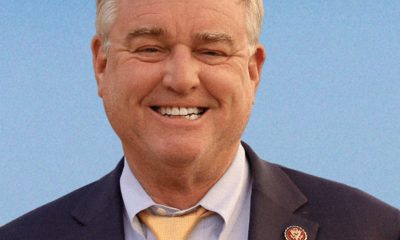
 Maryland4 days ago
Maryland4 days agoTrone discusses transgender niece
-

 The White House3 days ago
The White House3 days agoJane Rigby awarded Presidential Medal of Freedom

